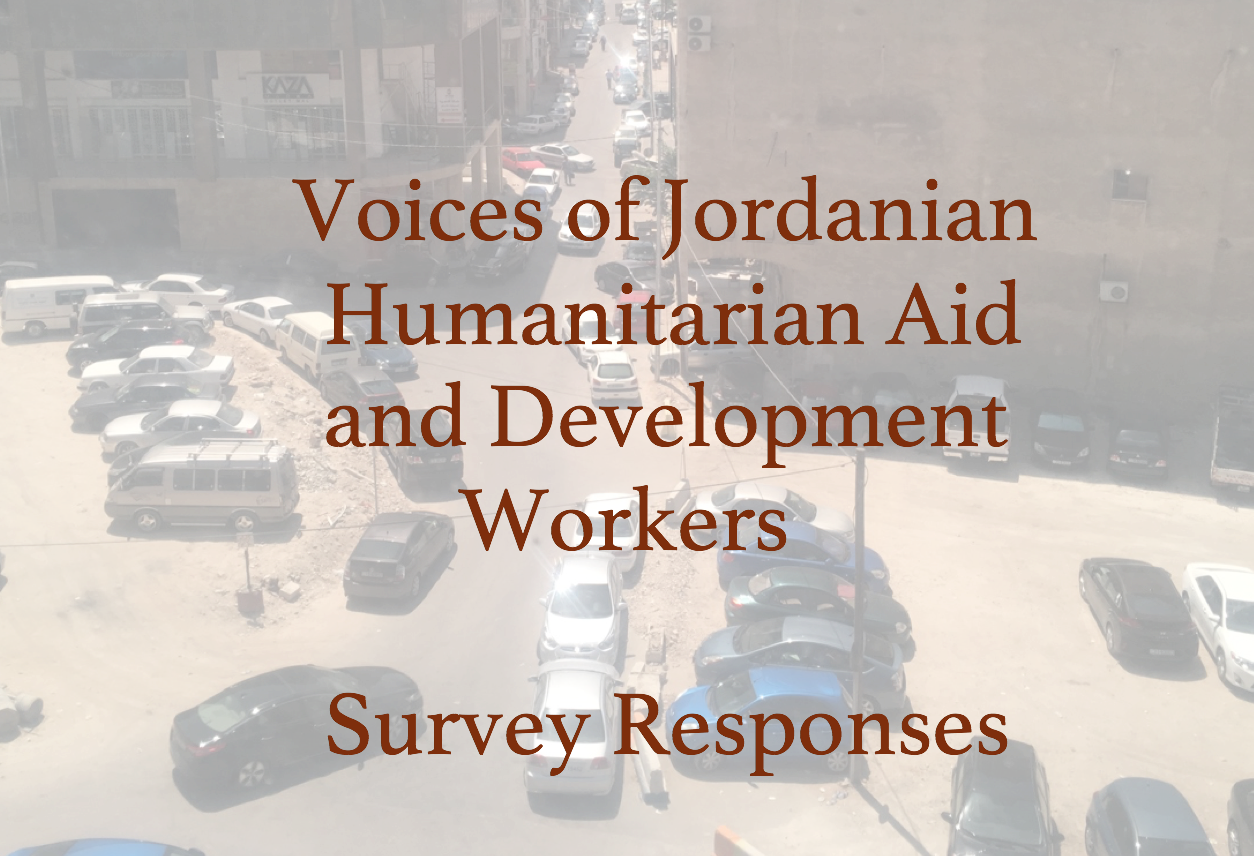Family matters & humanitarians
Married and obligated
The respondents to the survey were mostly single -64%, with 70% of the females reporting being  unmarried compared to 52% of the males reporting same. Of minor note, the females in the sample were slightly younger than the males, with 17% reporting being between 18-27 compared to 6% of the males.
unmarried compared to 52% of the males reporting same. Of minor note, the females in the sample were slightly younger than the males, with 17% reporting being between 18-27 compared to 6% of the males.
Early in my research while workshopping drafts of the survey in Amman, marital status came up in conversation, with single individuals indicating they felt an expectation that they should work longer hours, and those married indicating the role strain of being a spouse/parent and humanitarian professional was quite significant.
I asked, “To what extent has your marital status impacted your humanitarian aid work experience?”
 Here are the aggregate results indicating that while most -64%- said that their marital status has no impact on their humanitarian work experience, by a ratio of 2:1 -24% to 12%- respondents viewed their marital status as having a positive impact.
Here are the aggregate results indicating that while most -64%- said that their marital status has no impact on their humanitarian work experience, by a ratio of 2:1 -24% to 12%- respondents viewed their marital status as having a positive impact.
Breaking this down, 70% of those not married indicated that their marital status had no impact on their work experience as opposed to less than half -44%- of the married individuals indicating same. Digging deeper, I found nearly twice as many married people -35% compared to 18%- felt their marital status had a positive impact, while at the same time the data indicating that 22% of the married respondents say their marital status has a negative impact, giving meaning to the phrase ‘relationship status = complicated.’
Humanitarian voices
Here are some comments amplifying the numbers above. This first comment could have been made by non-married workers in virtually any workforce.
“In the humanitarian sector you are regarded as a better quality when you’re single, like it is in my case. However, it has a negative impact of expectations: as I am expected to spend more time than usual at work sometimes just because I don’t have children and my own family.”
One respondent commented “Can work the long hours without feeling guilty.” underlining a positive spin on this sentiment.
Regarding the role strain mentioned above, a married male humanitarian commented,
“Long working hours, late night, working over weekends and extra work at home are all bad influence to the relationship.”
This unmarried female underscores a different dimension of role strain felt by those who must attend to their parents needs while living at home.
“Generally, single women are more “hirable” than married women, but single Jordanian women are expected to do the most work, stay longer hours until the work is done, our parent dependents are not included in health ensurance because married men are supposed to be more burdened than us.”
Respectable job?
History tells us that there have been Jordanian humanitarian workers for decades, dating back at least to when the first Palestinian refugees created in the late 1940’s. Over the years the humanitarian sector has become woven into the Jordanian economic and social structures, since the beginning of the Syria conflict has become an increasingly significant part of the Jordanian economy.
The next question on the survey asked, “How do your family and friends view your job as an aid or development worker?”
your family and friends view your job as an aid or development worker?”
An overwhelming majority reported that their family and friends see being a humanitarian worker as a ‘good and respectable job.’ There was a very small difference between males and females, with females indicating by a slightly higher percentage that their friends and family viewed the job as respectable (85% compared to 78%).
That said, and again illustrating the role conflict discussed above, there are some notable complications as indicated in this comment:
“They generally respect my job, however, many locals do think that international humanitarian agencies are part of a bigger political agenda, and that certain donors wouldn’t have given money if they had no interest in the war in Syria in one way or another. Therefore, I have enocuntered many locals who think that jobs like this contribute to the mess in the middle east.”
These next two comments add to the conversation about the ‘expat’ versus ‘national’ compensation disparities discussed in previous posts.
“Everyone in Jordan now wants to be a humanitarian worker, even if they have never had any interest or background in this field, even if their values oppose those of the humanitarian work, everyone wants a Job in a NGO because its one of the highest paid sectors in the nation.”
“They’re happy that I’m in this field, yet they believe that my organization is under paying me.”
In my next post I’ll address the issues of job security and the opportunities for vertical movement within thew sector for national humanitarian workers. Until then, please contact me here with any comments or questions.
You can access all of my posts related to Jordanian humanitarian workers here.


 Follow
Follow